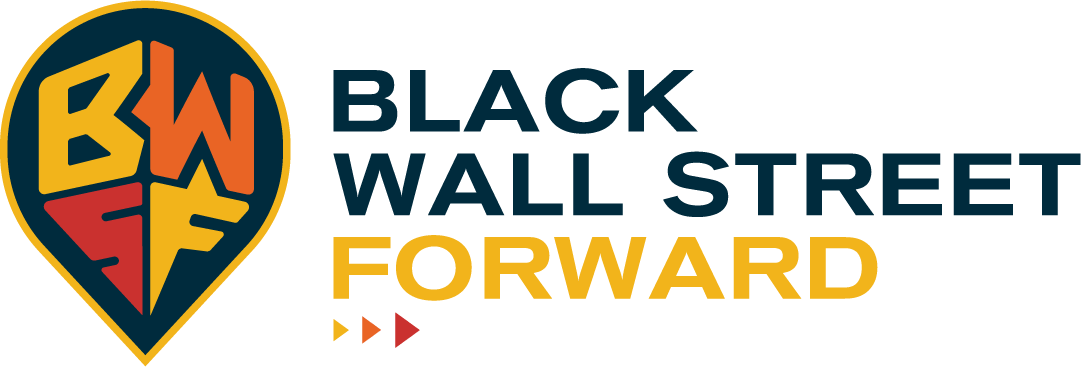This blog is part of The Funding Crisis for Black Entrepreneurs series.
In the previous installments of this series, we addressed the importance of engagement and the critical role of ecosystem builders in driving sustainable outcomes for Black entrepreneurs. But leaders alone cannot carry this work on their backs—they need strong, well-resourced institutions behind them.
That brings us to the next and equally essential pillar of the investment framework: funding Black-led organizations like you mean it.
For far too long, Black-led organizations have been expected to do transformative work with limited, restricted, and short-term grants that barely cover operational costs, let alone innovation or growth. These constraints reflect a deeper issue—a lack of trust in Black leadership and decision-making authority.
If we are truly committed to racial equity and building sustainable Black economies, then that trust must be restored—and backed by real, long-term investment.

Why Funding Black-Led Organizations Matters
1. They Are Closest to the Ground—and the Truth
Black-led organizations are often deeply rooted in community, with a nuanced understanding of the challenges, assets, and aspirations of the people they serve. They don’t parachute in with prescriptive solutions—they live the work, listen deeply, and adapt to meet evolving needs.
 Because of this proximity, they are uniquely positioned to design and deliver more culturally relevant, community-informed programming. But when funding is tied to rigid deliverables that don’t reflect those lived realities, that insight and responsiveness are stifled. When we trust these organizations with unrestricted, multi-year funding, we allow them to do what they do best: lead.
Because of this proximity, they are uniquely positioned to design and deliver more culturally relevant, community-informed programming. But when funding is tied to rigid deliverables that don’t reflect those lived realities, that insight and responsiveness are stifled. When we trust these organizations with unrestricted, multi-year funding, we allow them to do what they do best: lead.
2. Restricted Funding Reinforces Scarcity and Burnout
It’s not just that Black-led organizations receive less funding. It’s that when they do, it often comes with so many strings attached that it restricts innovation, agility, and sustainability. They're constantly fundraising, over-reporting, and reshaping their work to fit funding priorities that often feel disconnected from their mission.
The result? Burnout, staff turnover, and a chronic undercapitalization of Black leadership.
This cycle doesn’t just hurt the organizations—it undermines the broader ecosystem of support for Black entrepreneurs. We can’t expect Black entrepreneurs to thrive if the organizations designed to serve them are surviving on piecemeal funding and fragile infrastructure.
"We can’t expect Black entrepreneurs to thrive if the organizations designed to serve them are surviving on piecemeal funding and fragile infrastructure."
Fay Horwitt
3. Strong Institutions Drive Scalable, Systemic Impact
Black-led organizations are not simply service providers—they are often movement hubs, policy advocates, conveners, and visionaries. When resourced adequately, they don’t just serve entrepreneurs—they create the systems, pipelines, and partnerships that transform entire communities.
Strong institutions retain talent, build infrastructure, attract further investment, and shape the future. But they cannot do this if they’re constantly operating in crisis mode or being asked to prove their value before they’re resourced to deliver.
If we are serious about equity, we must move beyond symbolic gestures and short-term grants. Unrestricted, multi-year funding must become the norm.
Why Funders Struggle With This—and Why It Has to Change

Many funders are still hesitant to relinquish control. They want assurances, measurable outcomes, and visibility into exactly how every dollar will be spent. And while accountability is important, we must examine why that accountability is often applied more rigorously to Black-led organizations than to their white-led counterparts.
This dynamic is rooted in a long history of structural distrust and paternalism, where Black leaders are expected to “prove” their worthiness while being denied the very resources that would allow them to succeed.
If funders truly believe in equity, they must shift their posture from gatekeeping to partnership. That means trusting Black leaders with the flexibility, autonomy, and time to build, experiment, and grow. It also means valuing process, community engagement, and long-term movement-building—not just immediate program outcomes.
What Happens When We Fund Black-Led Organizations Like We Mean It?
When Black-led organizations are trusted and resourced, the returns are profound:
- They build lasting infrastructure that supports entrepreneurs across generations
- They develop more relevant and effective models of support
- They attract and retain talented leaders who reflect the communities they serve
- They scale successful interventions and inform policy
- They catalyze community-wide transformation and economic mobility
In short, when Black-led organizations are empowered, they don’t just fill gaps—they reshape the landscape.
What’s Next: A Call to Funders
If you’re serious about advancing racial equity and inclusive economic development, here’s what to consider:
- Are you funding Black-led organizations for the long-term, or just supporting isolated programs?
- Are your grants unrestricted, or are they burdened with compliance and constraints that undermine flexibility?
- Are you applying the same level of trust and autonomy to Black-led organizations as you do to others?
- Are you investing in capacity, leadership development, and institutional resilience—not just outcomes?
One way to start is by committing to multi-year, general operating support. Fund back-office operations. Fund talent retention. Fund innovation and experimentation. Fund mistakes, learning, and evolution.
Most importantly—fund with trust.
At Forward Cities, we’ve seen firsthand what happens when Black-led organizations are resourced to lead boldly. We invite funders, investors, and partners to connect with us as we work to support and scale this model nationwide.
Ready to fund with purpose? Let’s talk about how we can shift from symbolic support to real investment in Black-led organizations.
 ABOUT THE AUTHOR
ABOUT THE AUTHOR
Fay Horwitt
Chief Program Officer, Forward Cities
Fay serves as the Chief Program Officer of Forward Cities, where she oversees organizational strategy. In addition, Fay is a dedicated advocate for the emerging profession of ecosystem building, and as a founding member of Ecosystems Unite. Beyond her formal roles, she is a sought after presenter, trainer, and thought leader on the topic of equitable entrepreneurial ecosystem building. Never one to be content with status quo, Fay has also recently begun addressing a new need in local communities: ecosystem healing–helping pivot ecosystems and institutions in this time of the dual COVID-19 and systemic racial injustice pandemics.

The Black Wall Street Forward initiative aims to reshape narratives, engage community leaders and entrepreneurs, and foster sustainable, equitably invested, Black-centric entrepreneurial communities.
Are you interested in learning more about Black Wall Street Forward or finding ways to join the movement? Subscribe to the newsletter to stay updated on what’s new and ways to engage with us.